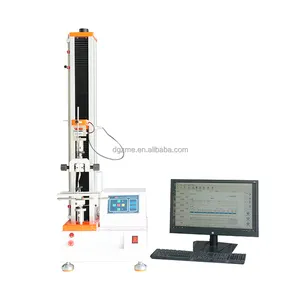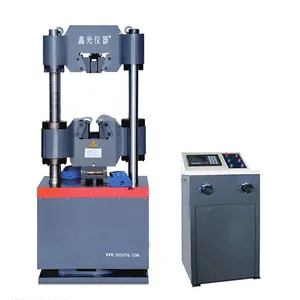Introduction to 100kN Tensile Testing Machines
Tensile testing machines are essential instruments in the field of material science and engineering, designed to assess the tensile strength of various materials. The 100kN tensile testing machine stands as a robust example within this category, capable of exerting a force of up to 100 kilonewtons to evaluate the elongation, tensile strength, and yield strength of a sample.
Types and Applications
The universal testing machine is a variant of the 100kN tensile tester, widely used across industries for its versatility in testing different materials, including metals, plastics, and composites. These machines are integral in quality control processes, research and development, and even educational settings, ensuring materials meet the necessary standards and specifications.
Features and Materials
A mechanical testing machine like the 100kN model is equipped with precise load cells and robust frames to handle the high-stress demands of tensile testing. The construction of these machines often involves high-strength materials such as steel, capable of withstanding the significant forces applied during tests without compromising the machine's integrity.
Advantages of Using a 100kN Tensile Tester
Employing a material testing machine of this caliber ensures reliable data on a material's performance under tension. This is crucial for predicting how a material will behave under real-world forces, which is invaluable for manufacturers and engineers alike. The data obtained can lead to the enhancement of material properties and the development of safer, more durable products.
Choosing the Right Tensile Testing Machine
When selecting a 100kN tensile testing machine, it is important to consider the specific requirements of the materials to be tested. Factors such as the machine's accuracy, speed range, and the type of grip required for the material are critical for obtaining precise and reliable results.
Complementary Equipment
In addition to the core testing machine, complementary equipment such as extensometers, which measure material deformation, and software for data acquisition and analysis, play a pivotal role in the testing process. These tools enhance the capabilities of a 100kN tensile testing machine, providing a comprehensive understanding of material properties.































 浙公网安备 33010002000092号
浙公网安备 33010002000092号 浙B2-20120091-4
浙B2-20120091-4